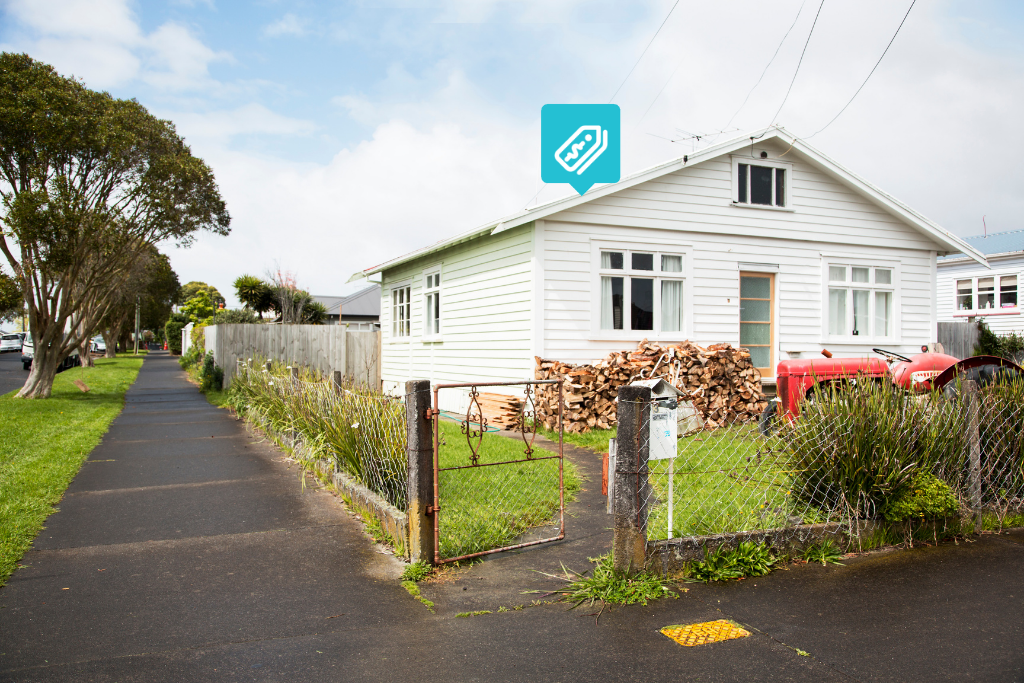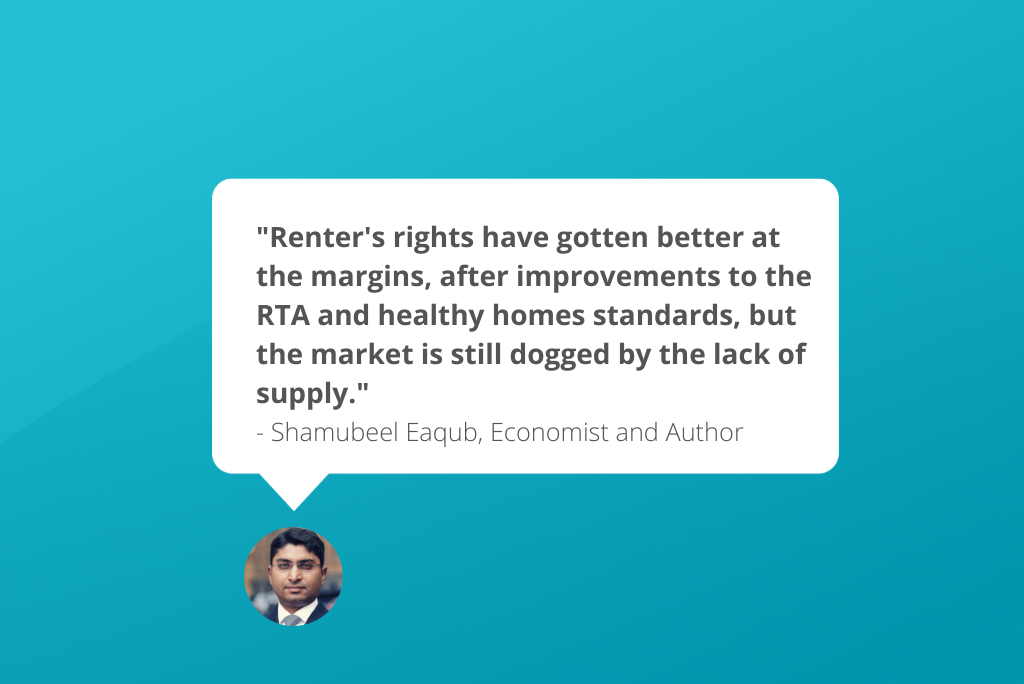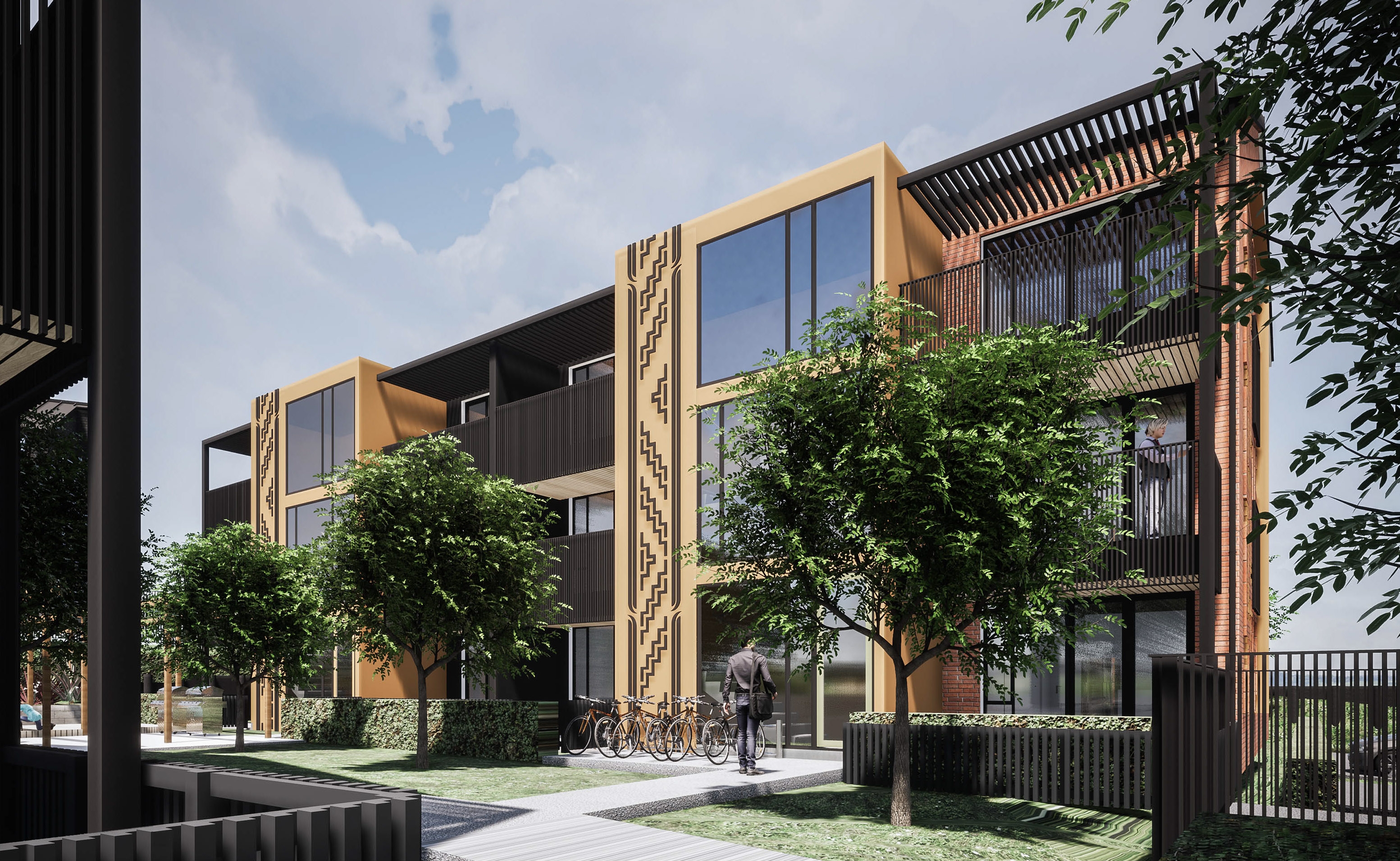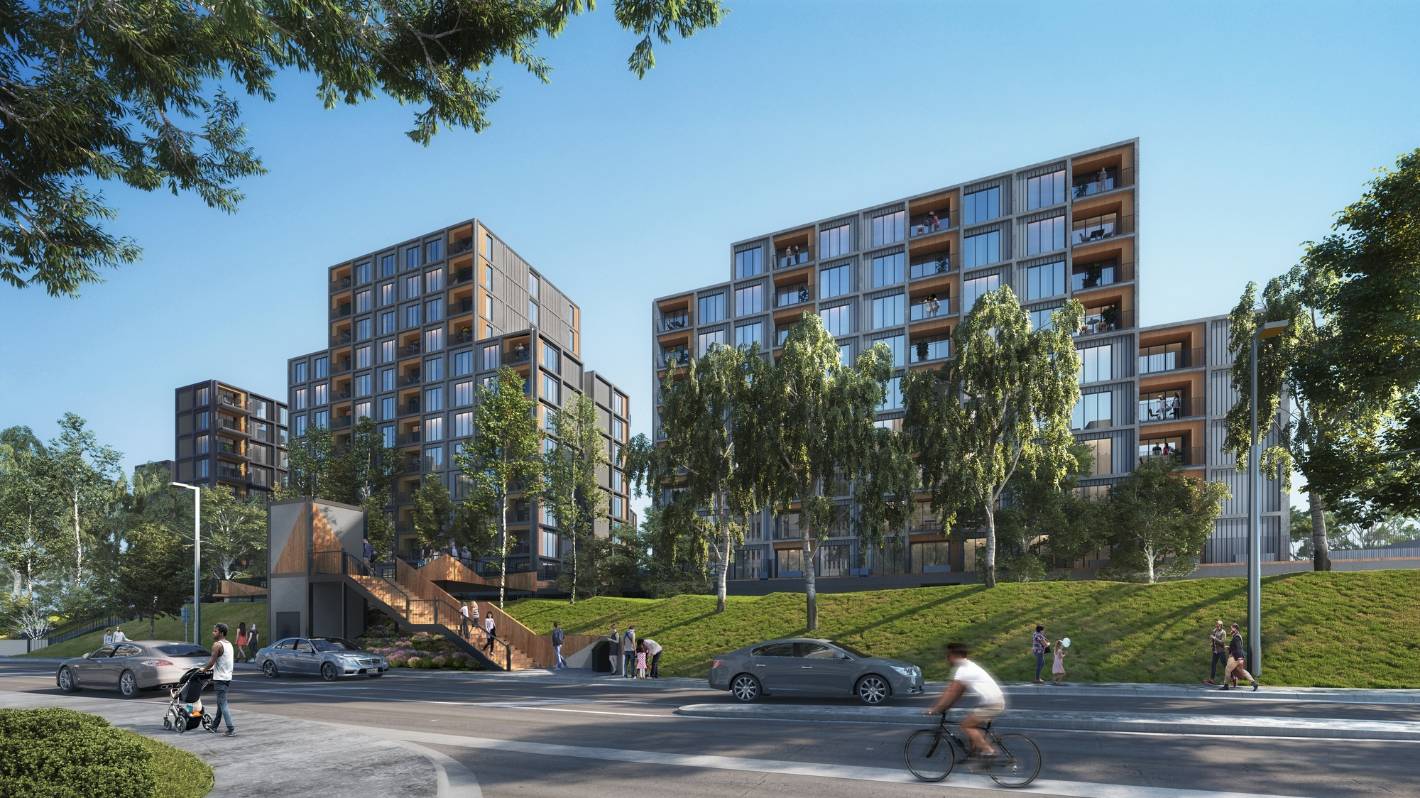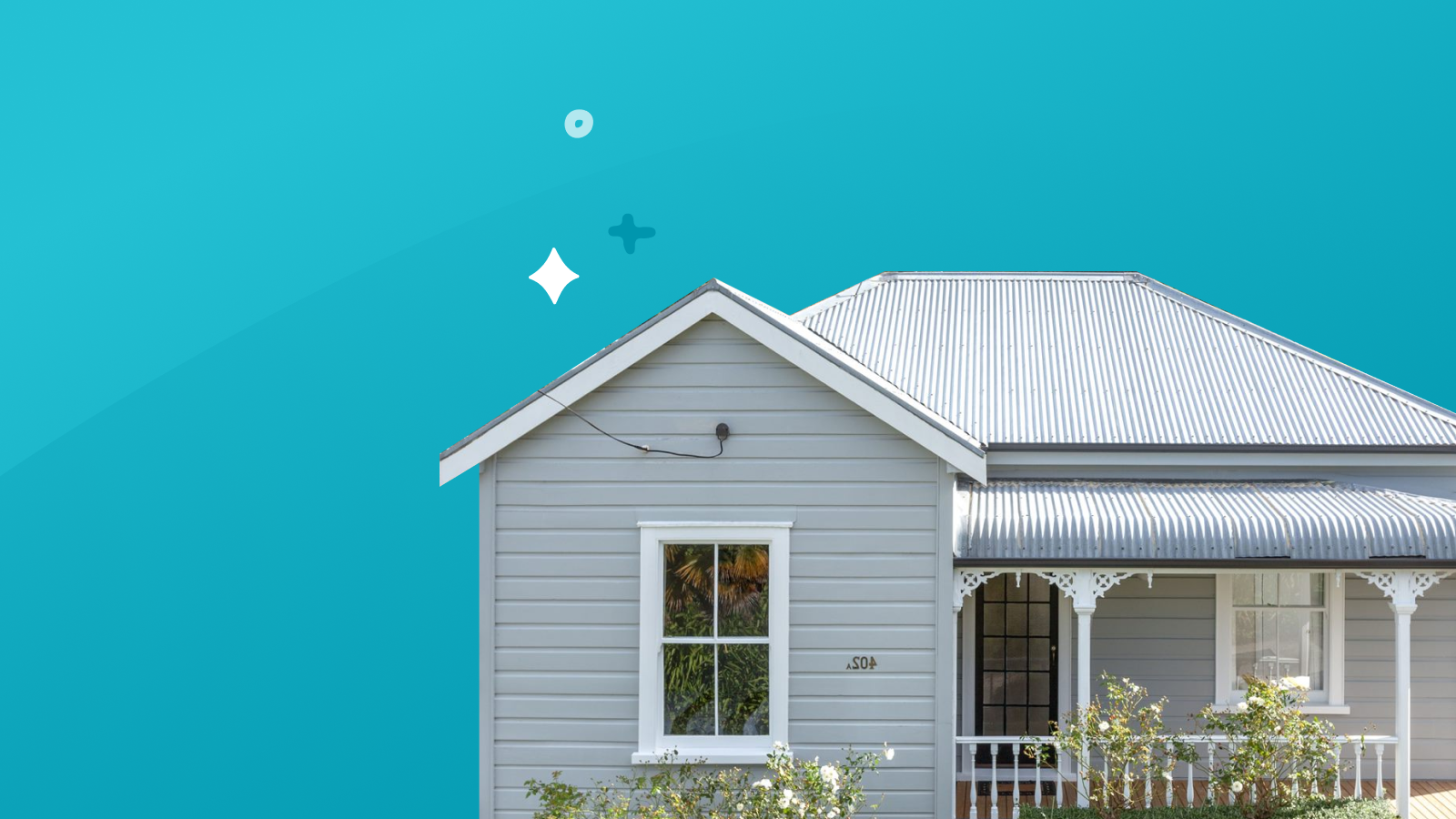Renting Guide
What's in Store for NZ's Long-term Renters?
Long-term or life-long renting is a new reality facing many Kiwis, but what does the future hold for them?
There’s been a lot of anguish and debate in Aotearoa New Zealand over the last couple of years with more Kiwis being forced to stay renting as they struggle to get on the property ladder. Tenants who want to be homeowners are finding it harder to save house deposits as rents rise, mortgage rates are, meanwhile, on their way up and mortgage lending has become much more restricted.
According to research from the Financial Services Council of New Zealand, 'Money and You: Generation Rent,’ Generation Rent is a group of 1.5 million New Zealanders aged 18-39. In that group, 60% are renters while 40% own a home.
Around 83% of Gen Renters surveyed by the FSC believe that owning a home is the ticket to long-term security and 55% are actively working towards buying their own home in the next five years, says FSC chief executive Richard Klipin.
But as house prices have risen, chances are your rent has increased and the research found,
Owning a home is in the DNA of how NZ thinks about wealth and creating wealth says, Richard. He says that the amount people have invested in property still far outweighs the money they have in shares.
“Look at the total amount of savings in KiwiSaver and it’s $90 billion, a little bit more than the NZX, then you look at the total value of people’s wealth in property and it’s in the trillions of dollars.
Kay Saville-Smith, Director of the Centre for Research, Evaluation and Social Assessment and Co-leader of the Affordable Housing for Generations programme doesn’t believe New Zealanders are “addicted” to homeownership but renters face very difficult conditions making homeownership preferable.
In her research, she notes senior renters are particularly vulnerable to the vagaries of the private rental market because people on superannuation can’t just earn more to pay an increase in rent.
Thanks to the Residential Tenancies Act, there’s more security of tenure than there used to be but the legislation probably still hasn’t gone far enough to protect renters, she believes.
“In New Zealand, there’s such resistance to any regulatory control of the private rental market, even though we know the previous structure was old and inefficient,” she adds.
The difficult conditions renters face, makes homeownership preferable.
“I think there needs to be many more vehicles for affordable security,” she adds.
But at the end of the day, it has to be faced that house prices are going up, rents are going up and the supply’s not there. The lack of affordable housing is treated as a social problem but it’s actually an economic problem, says the researcher.
There are limits to the market and we’ve hit up against it. We need an alternative market and it’s about how that can be created, says Kay.
“What’s the alternative way that we can build, buy, exchange dwellings whether it’s secure or rented, or in shared ownership. How could you create that and get people into secure housing?”
The reality for renters wanting to be homeowners
Shamubeel Eaqub, co-author with Selena Eaqub of the book, “Generation Rent: Rethinking New Zealand’s Priorities,” lists a few different things going on for the country’s renters in 2022:
In the current environment, both house prices and rents are rising, so the deposit to buy is getting bigger, and disposable income after paying rent is falling. In terms of share of income to spend on rent it used to be a third, now it’s about 45%, says Shamubeel. So it's getting harder to save a deposit.
A major problem, says the Sense Partners’ economist, is we aren’t building enough houses, and when we do, they’re for owner-occupiers and rental stock isn’t growing fast enough.
“Rental housing stock hasn’t been growing for five years, which, considering that population growth is extraordinary,” says Shamubeel.
“And between half and three-quarters of new demand for housing is coming from renters so if the rental stock isn’t increasing, then we’ve got this big issue,” he says.
Trade Me figures support this. According to our data, nationwide rental listings between July 2021 and January 2022 were down 20% year on year, with stock only making a slight comeback in February.
Look at Porirua in Wellington, he says. In the last five to seven years the population has gone up but the number of rentals hasn’t gone up at all. “What used to be a fairly affordable place for young people and renters has really come under a lot of pressure,” says the economist. Porirua used to be the sanctuary where people could go, now they’ve got nowhere to go.
Meanwhile, the Government is so focused on picking a fight with investors, it’s stopping new ones from joining and bringing in more rentals, he argues.
“The biggest risk in the next couple of years will be that supply doesn’t grow much, that there’s pressure on availability, so when you want to move you can’t find a place,” says the economist.
As for people moving from big cities to the regions for respite, he sees this as the problem just spreading to rentals and house prices in smaller cities.
“So many are moving to Hamilton and now the house prices are unaffordable there too, “ says the economist. You can’t say, you should just go somewhere else, he adds.
Long term renting options needed
The fact is, long-term renting is becoming more and more common for many Kiwis, says Property Council NZ CEO, Leonie Freeman. This is partly due to high house prices as well as a greater desire for flexibility, she explains.
“As it stands now, renting is unsustainable, with supply shortages and price growth making it more difficult for New Zealanders to find a home,” she says.
One of the primary reasons renters have their tenancy end is the owner deciding to move back in themselves or to sell the property.
“Having that prospect hanging over your head as a tenant isn’t easy. New Zealand doesn’t have enough rental properties and we have a lengthy list of people who have bumped around in insecure arrangements,” says Leonie.
The property council head is a strong advocate of Build to Rent (BTR), an emerging sector where apartments and units are built by developers, usually backed by large investors, and the homes are specifically targeted at the rental market.
Build to rent schemes offer the security often missing from private rentals.
“With the introduction of BTR, we could offer Kiwis the option to choose their type and style of rental, at a more sustainable price point and with a range of tenure options,” explains the Property Council CEO.
Without progress in the BTR sector, “prospects for long-term renters look genuinely grim," warns Leonie.
Her idea for getting the BTR sector “up and on steroids” is for the Government to tweak a bit of legislation and create a new asset class for BTR, just as already exists for retirement villages and student accommodation.
BTR is a new type of “commercial living,” says the Property Council CEO and needs its own legislative treatment. A separate BTR asset class would enable overseas investment, depreciation and provide certainty around interest deductibility.
Australia, the UK, and the USA are all experiencing massive growth in the BTR space, while New Zealand lags behind, she says.
“If you could, with the flick of a parliamentary pen, pass a policy that costs you nothing, and guarantees an almost immediate large supply of quality, professionalised homes, where renters can shop around for the right price point and stay as long as they want, why on (Kiwi) earth wouldn’t you? “ she asks.
What build to rent players say
And Aotearoa has an increasing number of players keen to get started on building these tailored housing developments. In November 2021, Simplicity, the default KiwiSaver, provider announced a BTR programme with home builder, NZ Living, in a joint venture to be known as Simplicity Living. Its aim is to build affordable, quality homes, for rent across the country.
Simplicity Investment Funds will own and fund Simplicity Living through a wholesale funding arrangement. The homes will be Homestar 6 rated and have a long design life, says Simplicity managing director, Sam Stubbs.
It’ll hit the ground running. Simplicity Living will buy NZ Living’s two remaining developments in Auckland which are underway and will total 159 apartments in Onehunga and Point England.
“We’ll be leasing our first apartments this time next year,” says Sam. The projects will be on brownfield sites and near great transport links.
When Sam started researching the residential rental market, the problem he saw was that trust between tenant and landlord was declining.
“We’ve developed a rental culture of one-year leases, and paying lots of bond,” he says.
“Rather than running into a power relationship, there needs to be trust but not working one way. That’s not to say at times that we won’t have to be a tough landlord but the most important thing will be to vet tenants,” says the Simplicity co-founder.
The housing developments will create stable returns and a bond type of asset for Simplicity, he explains. In Germany and Holland pension funds might have 10% or more of their portfolios in these kinds of investments, he says.
Kiwis need fair rent and homes they can call their own.
“Rents will have to be fair to all parties involved and we’ll find that in the market at the time,” he adds.
Sam would expect the vast majority of rentals to be on one-year leases but that will be each tenant’s choice. One of the end games is that the homes might be an alternative to retirement villages.
“If we can offer right of occupation at a set rental where you don’t have to go to the palaver of owning, then it could be another option,” explains the Simplicity MD.
People will be able to customise the homes to their liking.
“The home has to feel like it’s yours,” he says. The intention is to create as much certainty on both sides and to take pressure off the current housing waiting list.
“Nothing we’re doing here is new, all we want to do is offer another option, to start to change the culture of renting and provide tens of thousands of people with homes,” he explains.
“And we’ll certainly bring a bit more price competition to the market if we increase the supply,” he adds.
Commercial property company, Kiwi Property also announced last year its plans to build a dedicated BTR development next to its shopping centre at Sylvia Park, providing 295 one to three-bedroom apartments. To be completed in 2024, the project will be up to 12 levels, with a 7 star Homestar rating. The company has said leases will be long-term if desired and rents will be fixed so there will be no surprises. And you can bring your pets.
The owner occupier market sucking up rentals
The first company to start specialising in the BTR sector in New Zealand is New Ground Capital which has BTR housing in Queenstown and Auckland.
New operators in the BTR sector will often have fact-finding meetings with New Ground Living director, Brian Collins, and the team. Brian is very happy to be joined by others. It’s a validation that the BTR sector is here to stay, he says.
A New Ground Living, Build to Rent development in Glen Innes, Auckland.
For a number of the players like New Ground Capital, the focus is around improving the life of renters, providing a good rental product, and “not charging an arm and a leg,” says Brian. “It’s all about trying to improve the position of renters and getting a return,” he explains.
The beauty of BTR homes, says Brian, is these modern, safe and healthy homes are usually internally managed and tenants are often given shared amenities, the latest in technology, bundled power, and internet services as well as a commitment to long leases if that suits them.
The New Ground Living developments are usually 50 apartments and walk-up units in the suburbs in areas like Hobsonville Point and Tamaki and typically appeal to singles, young couples, and empty nesters.
Renting becoming the norm and shouldn’t have a stigma
Brian doesn’t like the term Generation Rent, he thinks it has negative connotations.
A lot of New Zealanders start with the premise that renting is a bad thing, he says.
“I think we have to get used to the fact that the proportion of people who will rent for an extended period of time in their life will be shifting.”
“There are a lot of people on chats and forums who are wringing their hands about renting long term being a “great evil” and this just shows that New Zealand isn’t progressing,” he says.
The thinking is that people are being priced out of “rightful homeownership,” he says.
To provide a top-end product so there’s no stigma about renting,” he says.
“We have many people who are financially secure but wish to rent, they just have other things to do with their money,” adds Brian.
“Some of the wealthiest countries, Germany, Switzerland and Nordic countries have high numbers of renters in their populations. They have large BTR sectors and at the same time they have strong regulations which ensure renters are looked after, he notes.
With the BTR model, the tenant comes first, says Brian, who welcomes the recent moves by the Government to look at regulating property managers. It’s fantastic news for renters. At the moment, any person can put an ad online and say they’re a property manager, and they might be good or terrible, he says.
We must look to countries with large build to rent sectors and learn from them.
New Group Living has its own internal property management arm and its property managers live locally close to each development. When it has a project close to ready, New Ground will let its database of tenants know, then it’ll put the rentals up on Trade Me, using the normal process of renting an apartment.
Brian thinks, as traditional landlords sell off property, there’s going to be a move away from smaller landlords to larger institutional corporate landlords.
“And that’s not a bad thing, they’re not faceless, they’ve got good impact plans and their visions,” he reasons.
With four projects in the pipeline, the BTR specialist would like to see more priming of the pump for the BTR sector in Aotearoa. In the UK, there’s a $1 billion government-backed fund to assist the growth of the industry, the fund used to reduce developer contributions on BTR projects. helping the margins the developer would pay for a couple of years.
What’s ahead for renters?
Some are now calling on the government to step up and invest in this space.
New Ground Living is continuing to innovate. At its upcoming Glen Innes project, the tenants will have a phone community app. They’ll be able to use it to communicate with the property manager, to log a call about a maintenance issue, for instance.
“My emphasis now is to improve the enjoyment of living there. Some people hate talking to the property manager, so we’re looking after our tenants this way,” says the director.
“What I’d really like is for residents to set up clubs and forums,” he adds.
In UK BTR projects, he’s seen people setting up things like book clubs, gaming groups for kids, and wine clubs.
“These are the sort of things we’d like to introduce to the community and it’s not going to cost tenants,” says Brian.
And in case you were wondering, there will still be property inspections every three months due to insurance company requirements, says the New Capital director.
“Inspections are opportunities for you to tell us stuff, what you’d like to improve in the property,” he suggests. If it were up to him, with good tenants, he’d make inspections every six months.
Other articles you might like
